Organized by the International Hydrogen Fuel Cell Association (IHFCA) and the China Society of Automotive Engineers (China SAE), the 7th International Hydrogen and Fuel Cell Vehicle Congress & Exhibition (FCVC 2023) took place in Shanghai from July 5th to 7th. Additionally, IHFCA held its Third Session of the First Executive Board Meeting on July 6th.
In the theme of "Pioneer through Demonstration, Hydrogen for the Future", FCVC 2023 included one Plenary Meeting and eight technical and investment forums, alongside a 20,000-sq.m exhibition that hosted more than 300 exhibitors and 7,000 visitors. The Plenary Meeting took place on July 6th, attracting over 1,000 delegates from governments, international organizations, academia, and enterprises, with extensive information sharing and discussions on the latest hydrogen and FCV policies, technologies, and business models.
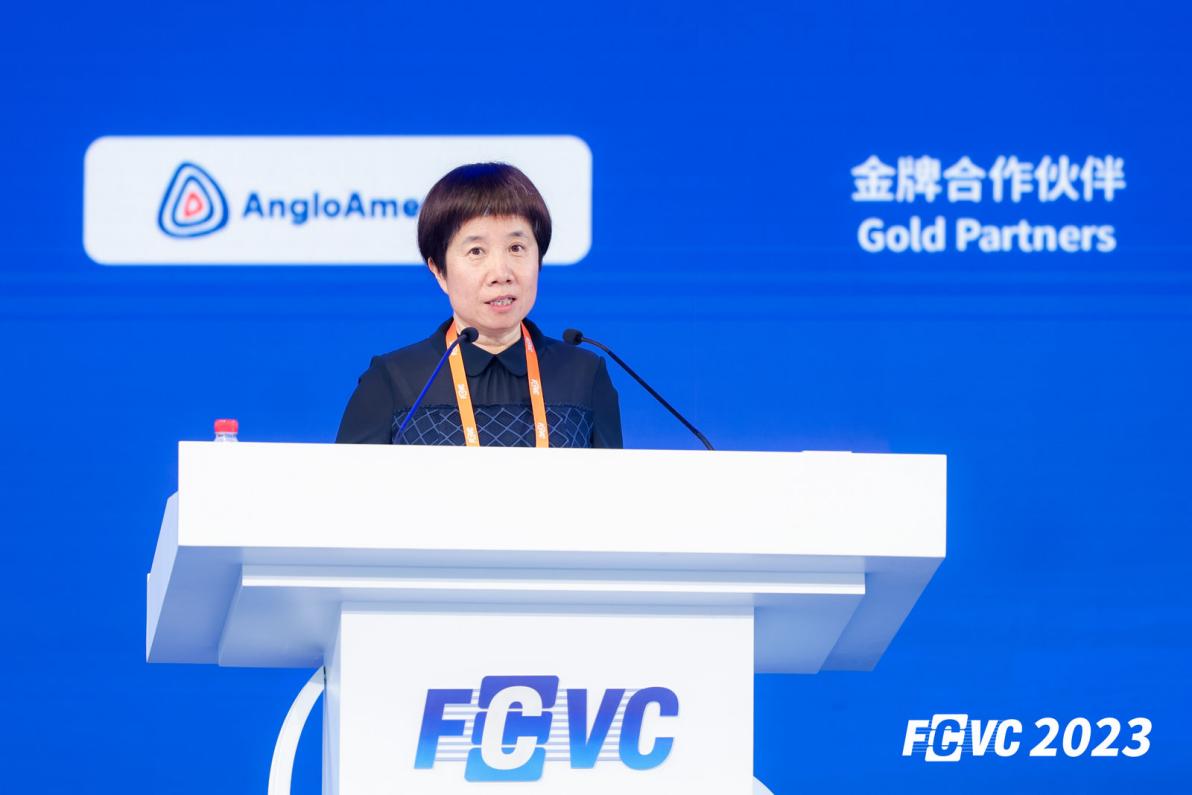
Wang Ju, IHFCA Secretary-General, hosted the Plenary Session
The highlights of FCVC 2023 include:
-
Demonstrating China’s strong commitment to hydrogen and FCV development for carbon neutrality, with speakers from the Ministry of Industry and Information Technology and the China Association for Science and Technology;
-
High-level speakers from international organizations, including Zou Ciyong, Deputy Director-General and Managing Director of Technical Cooperation and Sustainable Industrial Development of UNIDO; Klaus Bonhoff, Director General for Policy Issues, German Federal Ministry for Digital and Transport; Rebecca Maserumule, Chair of International Partnership for Hydrogen and Fuel Cells in the Economy (IPHE); and Jaedo Moon, Chair of Global Hydrogen Industrial Association Alliance. In addition, Tetsufumi Ikeda, Chair of ISO/TC 197, delivered an online presentation at the Standardization and Regulation Forum;
-
Thematic presentations by world-renowned experts, including green hydrogen R&D and commercialization by Academician Ouyang Minggao and hydrogen equipment by Academician Chen Xuedong.
Below are some key points from the FCVC speeches:
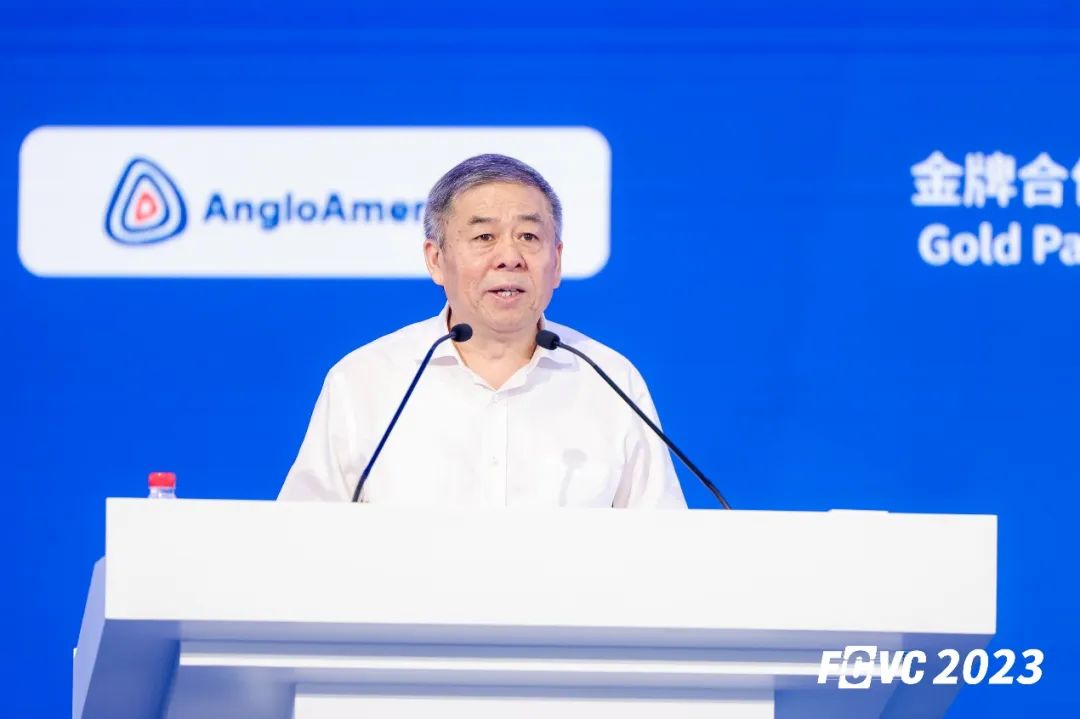
Miao Changxing, Counselor (DG level) of the First Division of Equipment Industry, Ministry of Industry and Information Technology
Miao Changxing reported that China sticks to green low-carbon sustainable development, attaches great importance to hydrogen and fuel cell vehicle industry development, deploys technology research and hydrogen fuel cell system construction and other tasks. The CPC Central Committee has pointed out the direction for hydrogen and fuel cell vehicle industry development, coordinated technological innovation, promotion and application and infrastructure construction, and promoted the development of fuel cell vehicle with positive results.
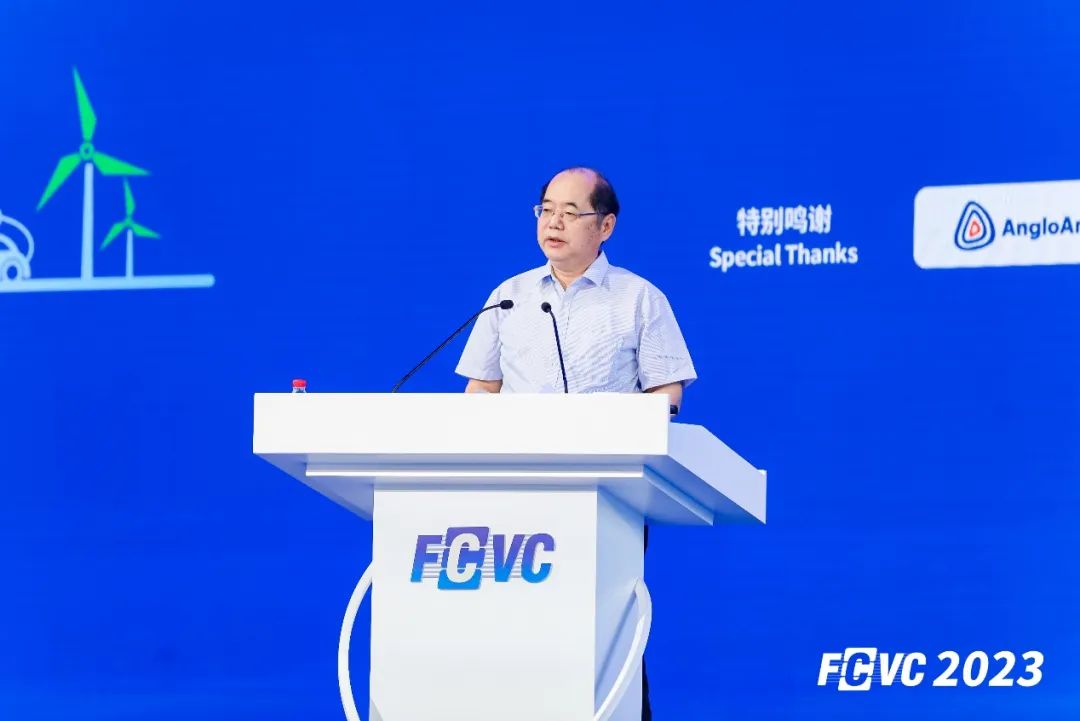
4
Wang Qinglin, Counselor (DG level) with Department of International Affairs, China Association for Science and Technology
Wang Qinglin emphasized that China should invest in building a high-level open ecology, uphold the concept of openness and tolerance, promote innovation with a global perspective, and focus on creating a new ecology conducive to the common sharing of innovation elements. China should develop talents from different perspectives, increase funding for talent cultivation, and lay a solid foundation for the long-term development of hydrogen and fuel cells. China should carry out high-level international exchange and cooperation, accelerate the expansion of mutual recognition of scientists' capabilities, enhance the internationalization of hydrogen, make the best use of international organizations and platforms, promote industrial cooperation, and promote the construction of standard systems and mutual recognition.
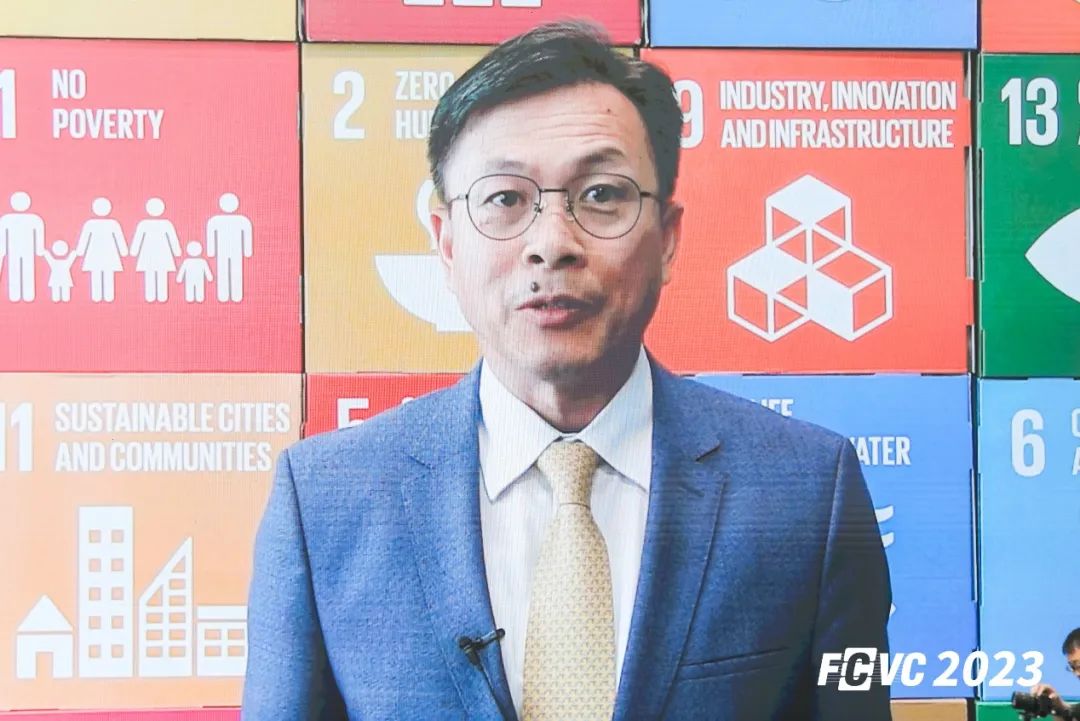
Zou Ciyong, Deputy to the Director General and Managing Director of Technical Cooperation and Sustainable Industrial Development of UNIDO
Zou Ciyong pointed out that fuel cells play an important role in carbon reduction in the transportation industry. It is important to strengthen international cooperation in fuel cell technology, markets and standards through global strategic dialogues, establish a low-carbon supply system for hydrogen and an infrastructure network system, reduce fuel cell production costs, encourage the fuel cell industry to invest and consume products, and promote the popularization and application of fuel cell vehicles worldwide.
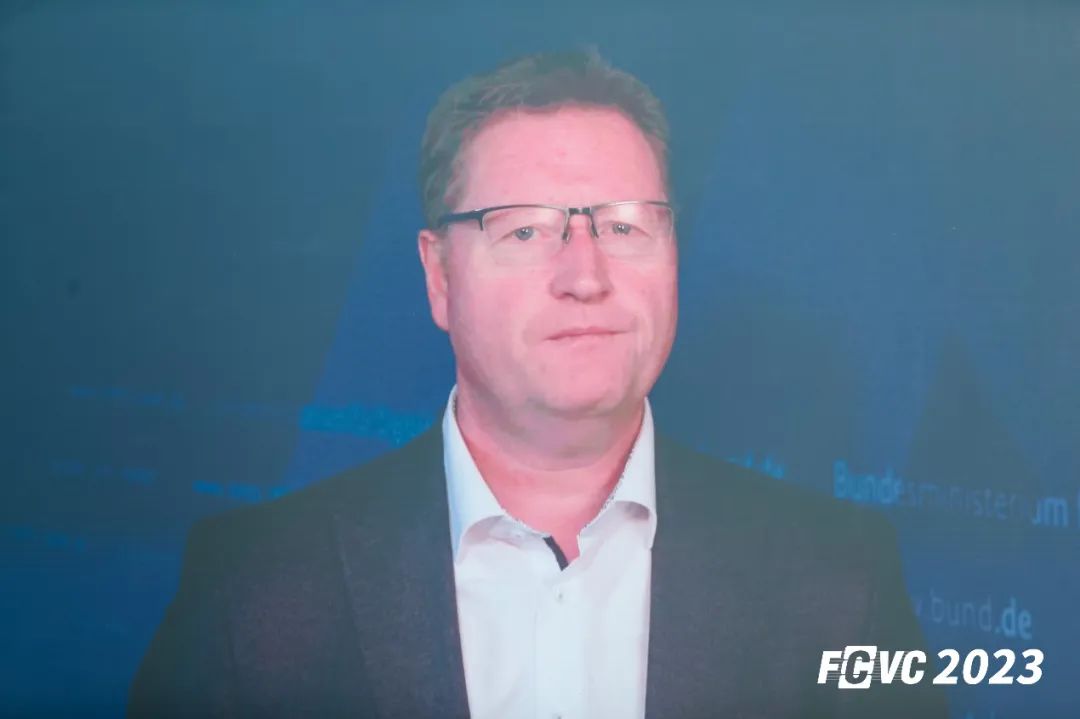
Klaus Bonhoff, Director General for Policy Issues, German Federal Ministry for Digital and Transport
Klaus Bonhoff said that Germany has set clear targets for the development of green hydrogen and has ensured the development of fuel cell vehicles and infrastructure by increasing investment in R&D and the market. The German Federal Ministry of Digital and Transport and the Chinese Ministry of Science and Technology have established the Sino-German Electric Vehicle Innovation Support Center (SGEC) to promote technological innovation and cooperation in hydrogen fuel cell vehicles between Germany and China, which has effectively helped to promote the application of hydrogen fuel cell vehicles on a large scale in both countries.
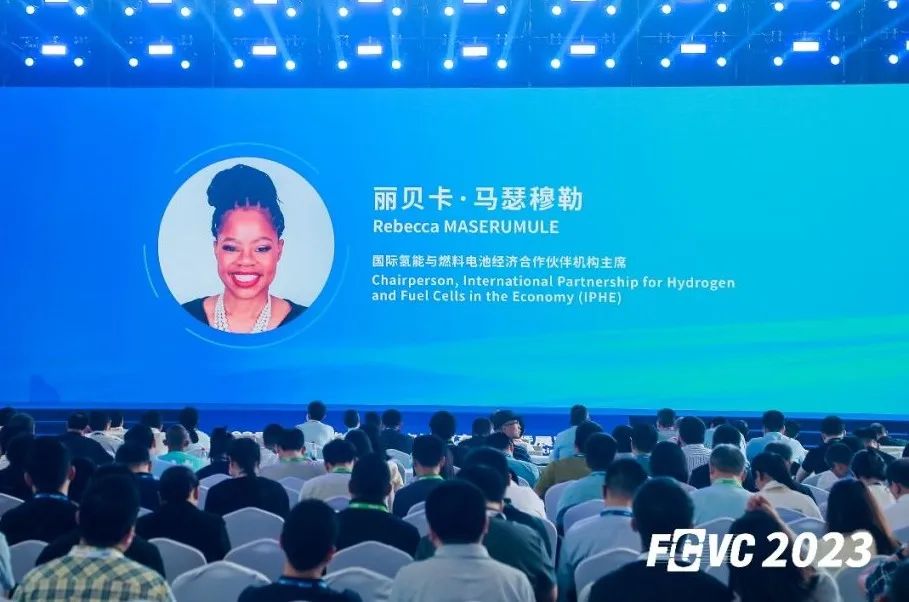
Rebecca Maserumule, Chairperson of International Partnership for Hydrogen and Fuel Cells in the Economy
Rebecca Maserumule commented that China promotes the multi-disciplinary and large-scale application of hydrogen by releasing the long-term plan of hydrogen, among which the application scale of fuel cell heavy trucks is at a leading level in the world. The International Partnership for Hydrogen and Fuel Cells in the Economy will maintain in-depth cooperation and communication with China in hydrogen development and promote the research and development and industrial application of hydrogen in the world.
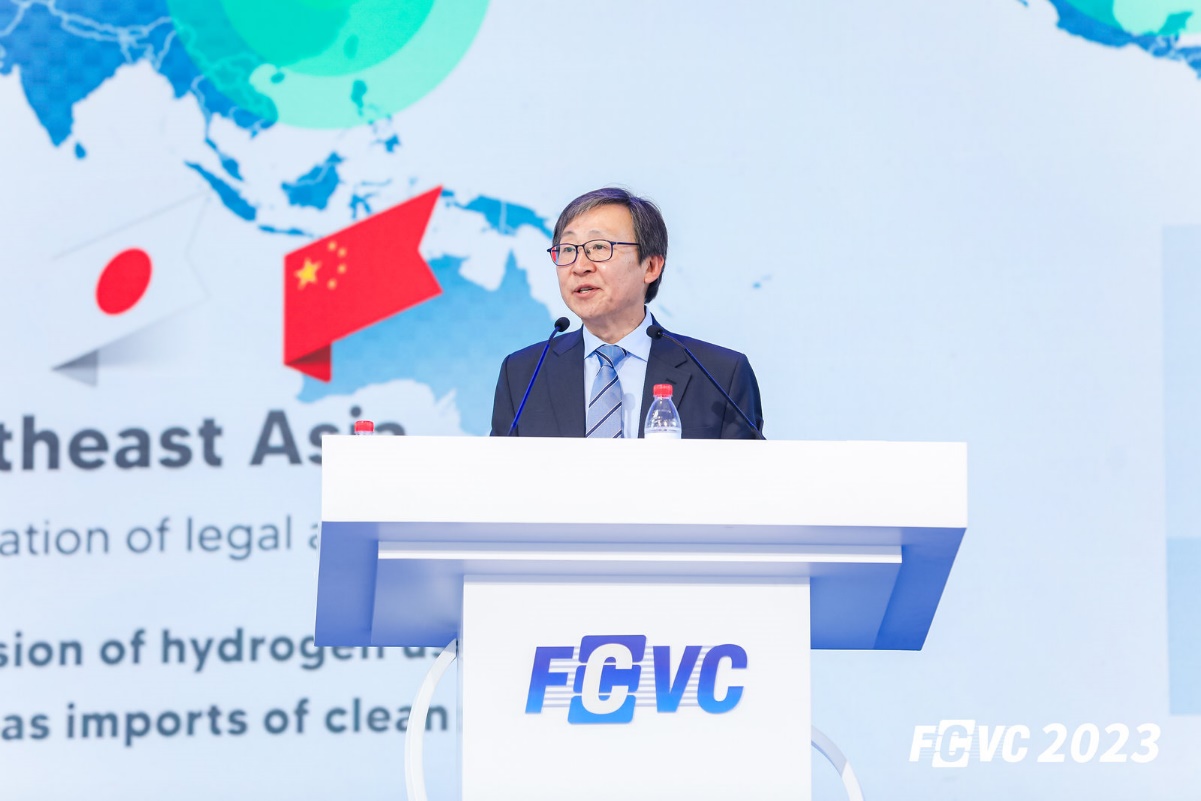
Jaedo Moon, Chairman of Global Hydrogen Industrial Association Alliance, Executive Board Member of IHFCA
Jaedo Moon stated that major countries are actively laying out the clean hydrogen industry and have made great achievements. However, future development still faces challenges in terms of standardization, cost reduction and trade barriers, etc. Countries around the world should work together to develop the hydrogen economy and create a hydrogen world.
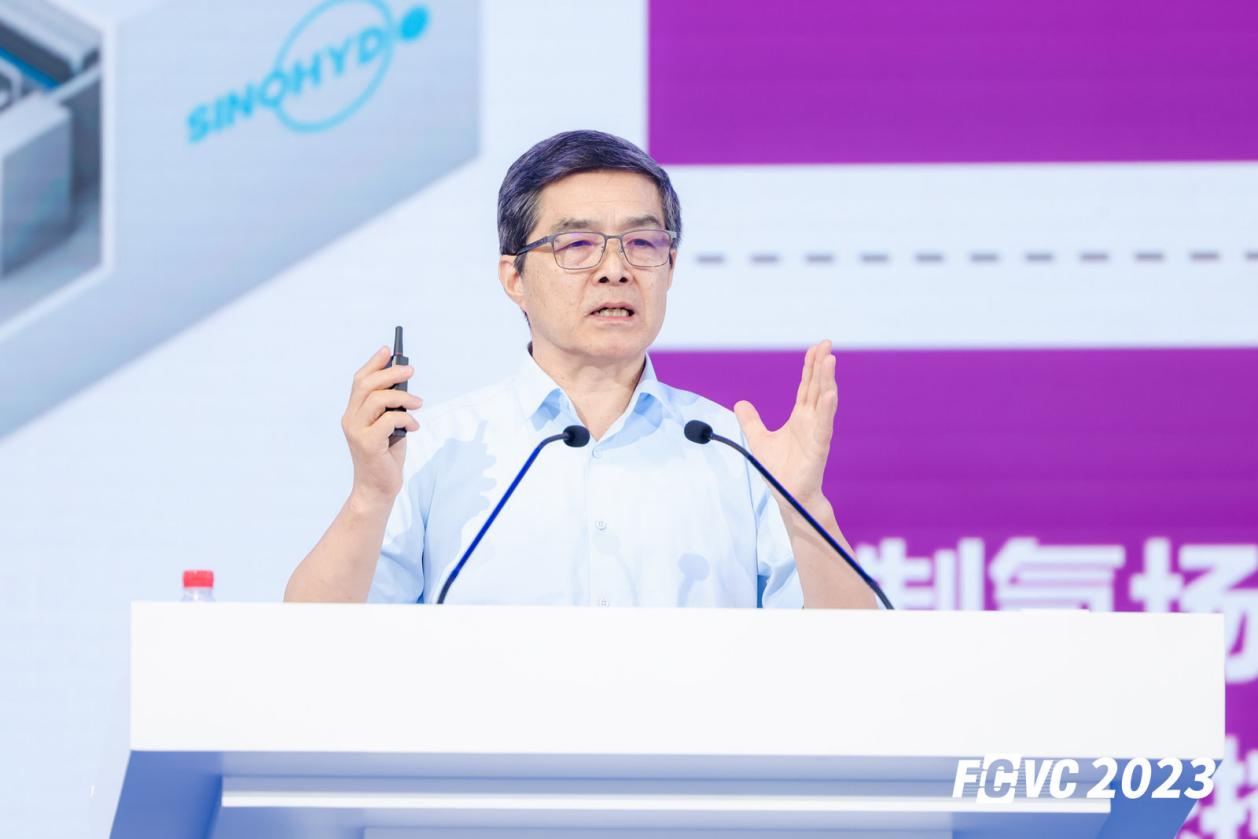
Ouyang Minggao, Chairman of IHFCA, Professor from Tsinghua University, Academician of Chinese Academy of Engineering
Professor Ouyang Minggao, Chairman of IHFCA, gave a comprehensive summary of hydrogen technology development in China. For hydrogen production, the combination of hydrogen and wind power photovoltaic is becoming a new trend, the industrialization of electrolytic water hydrogen production equipment brings vitality to hydrogen development, and the cost performance of Chinese alkaline electrolytic water equipment is top in the world. However, there is still much room for performance optimization and innovation. In terms of hydrogen storage and transportation, storage and transportation is still a weak part in the whole technology chain. Technologies continue to innovate, but revolutionary technologies have not yet emerged. In terms of fuel cell, there is a major breakthrough in the integration of automotive proton exchange membrane fuel cell system, and the related industrial chain has been established. The high-power fuel cell system for heavy trucks has become a technical highlight of hydrogen products, but gaps still exist, and the material technology of membrane electrode has become a bottleneck for further development. In terms of FCV cost, the vehicle fuel cell system has experienced a rapid price decline, but the price of on-board hydrogen bottles and hydrogen has restricted the rate of decline in fuel cell vehicle. In fuel cell applications, fuel cell transportation remains the forerunner of hydrogen applications. The application of hydrogen has diversified into hydrogen power, hydrogen material and hydrogen storage. The goal of carbon peak and carbon neutrality promote the application of hydrogen to expand from fuel cell vehicles to the whole industry chain of green hydrogen.
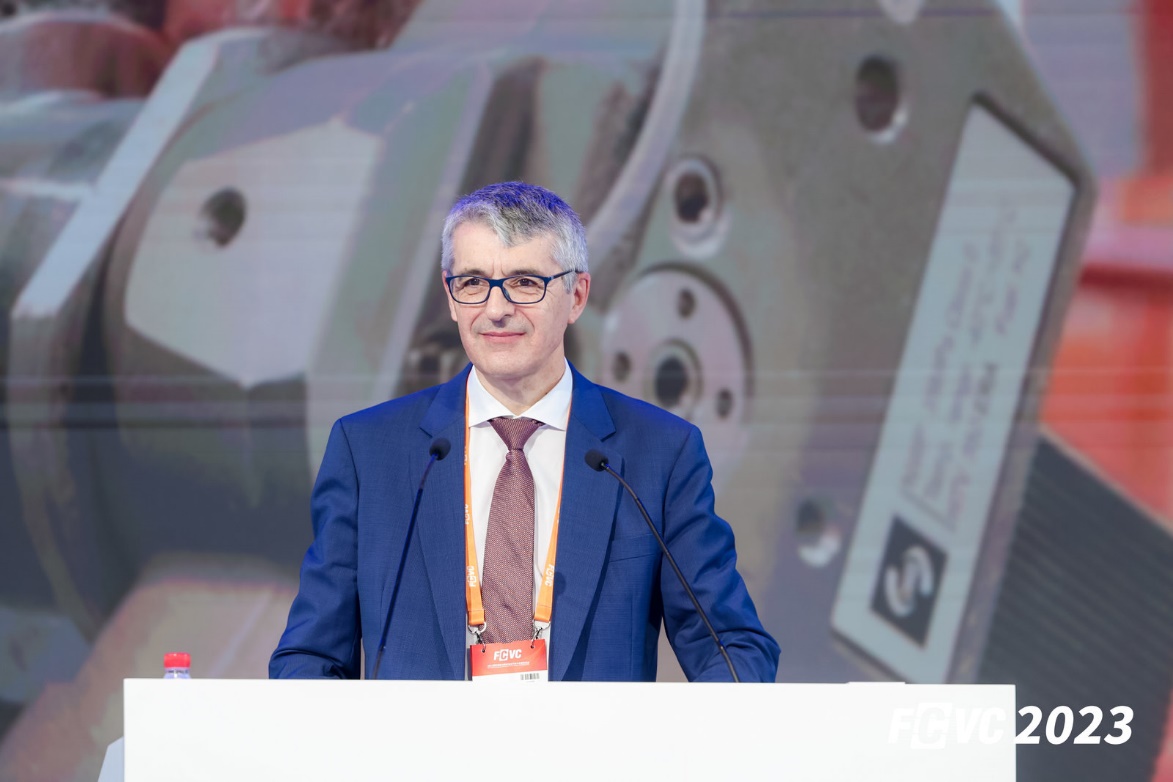
Francois Tardif, Vice Chairman of IHFCA, Executive Vice President of Faurecia Asia
Francois Tardif pointed out that to improve fuel cell vehicle range requires the development of square high-pressure hydrogen storage devices and liquid hydrogen storage solutions, and the refinement of the regulatory policy and standards for type IV on-board hydrogen storage bottles is crucial to promoting FCV development, and requires great cooperation over the whole industry chain.
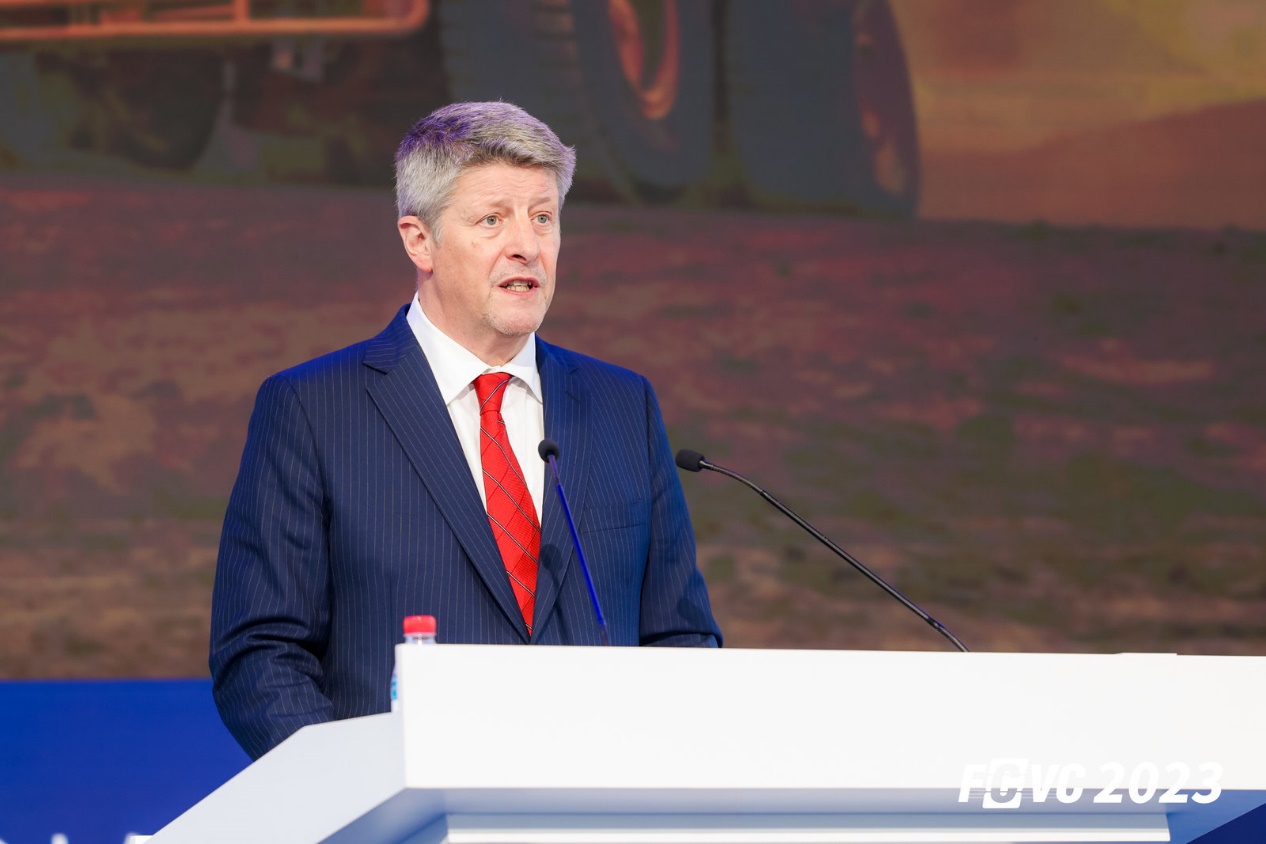
Benny Oeyen, Executive Head of Market Development PGMs Of Anglo American, Vice Chairman Member of IHFCA
Anglo American has been actively expanding the application potential of platinum group metals in hydrogen production from electrolytic water and fuel cells, and has deployed 400 fuel cell mining trucks worldwide. He said that Anglo American will demonstrate and promote 500 fuel cell passenger cars in Foshan, and participate in fuel cell vehicle industry development from hydrogen supply to fuel cell application.
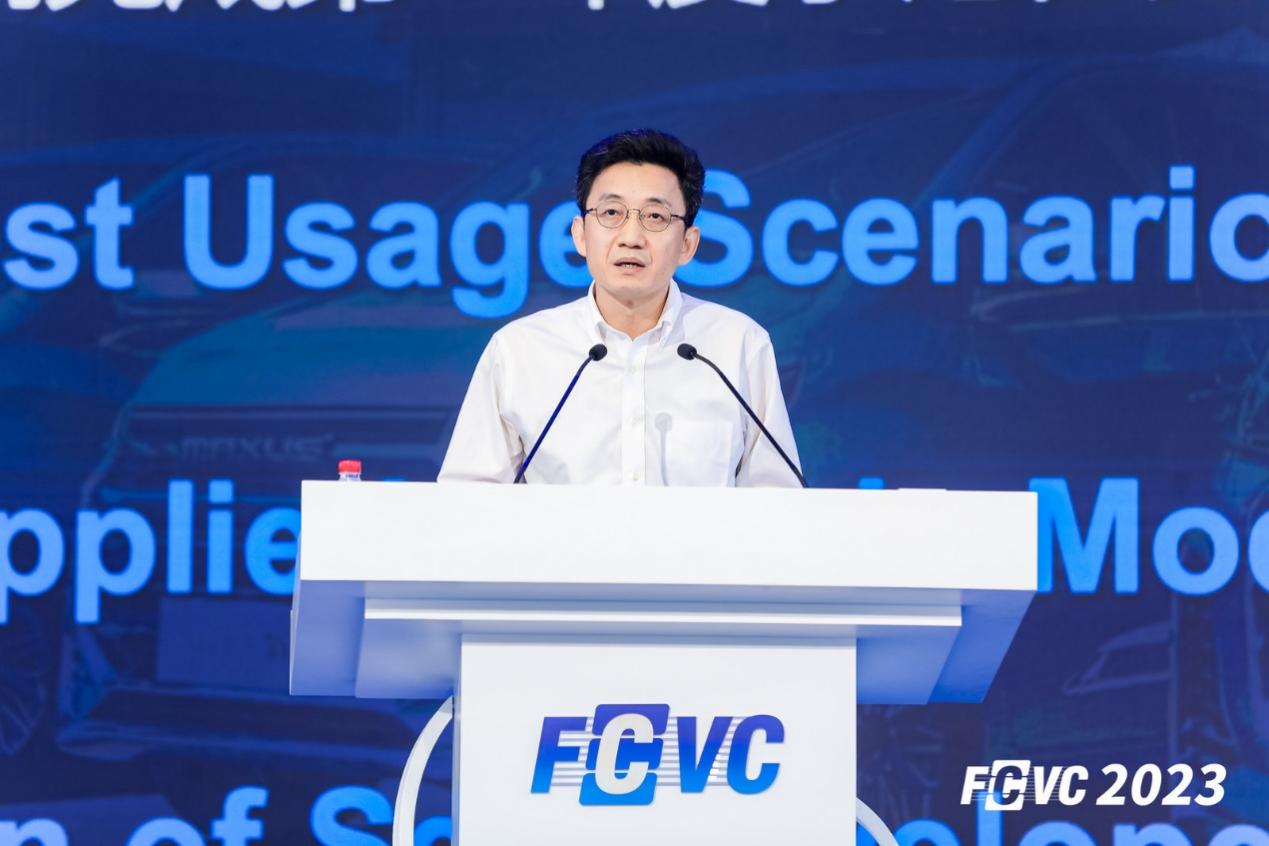
Zu Sijie, Vice Chairman of IHFCA, President & CTO of SAIC Motor Corporation
Zu Sijie pointed out that the main challenges faced by the commercialization of fuel cell vehicles are the insufficient number of hydrogen refueling stations and the high price of hydrogen, and suggestions are made for the next stage of fuel cell vehicle demonstration and operation. Firstly, to strengthen international cooperation; secondly, to deepen hydrogen application and improve infrastructure construction, and drive large-scale development; thirdly, to stick to the innovation drive, strengthen industrial synergy, and accelerate key technology breakthrough.
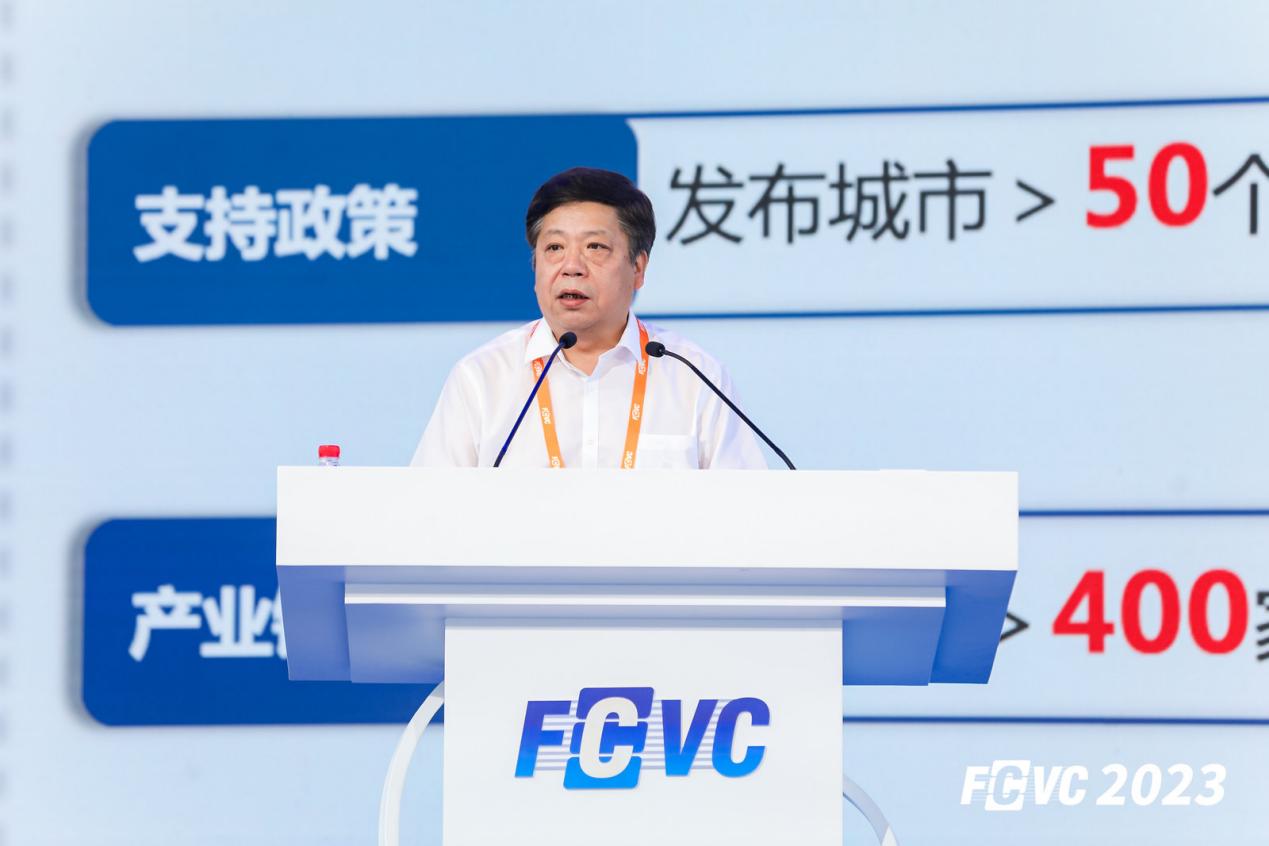
Wu Zhixin, Standing Executive Board Member of IHFCA, Vice General Manager of China Automotive Technology and Research Center Co., Ltd
Wu Zhixin illustrated that driven by the national fuel cell vehicle demonstration policy, 41 cities in 5 major city clusters have been included in the national fuel cell vehicle demonstration program, and many key advances have been made. In technological innovation, eight key components of fuel cell vehicles have achieved technological breakthroughs, and the technical level of the whole vehicle has been significantly improved. China has mastered the core technologies of fuel cell electric stack, bipolar plate and air compressor, and the breakthroughs of carbon paper and catalyst are being accelerated. In terms of vehicle promotion, as of April 2023, China has sold nearly 15,000 fuel cell vehicles, and from January to April 2023, China sold 1,048 fuel cell vehicles, ranking second in the world, and is gradually exploring applications in different scenarios such as production supply, waste treatment, urban consumption and urban construction. In terms of hydrogen supply, the whole industrial chain of hydrogen production, storage, transportation and processing has been gradually improved, and the preliminary hydrogen supply system has been established. Since the demonstration started, more than 80 hydrogen refueling stations have been built in urban clusters. In terms of supporting policies, local governments have strengthened the policy environment, while hydrogen management has become increasingly standardized, and the policy has shifted from promoting scale to improving the institutional environment.
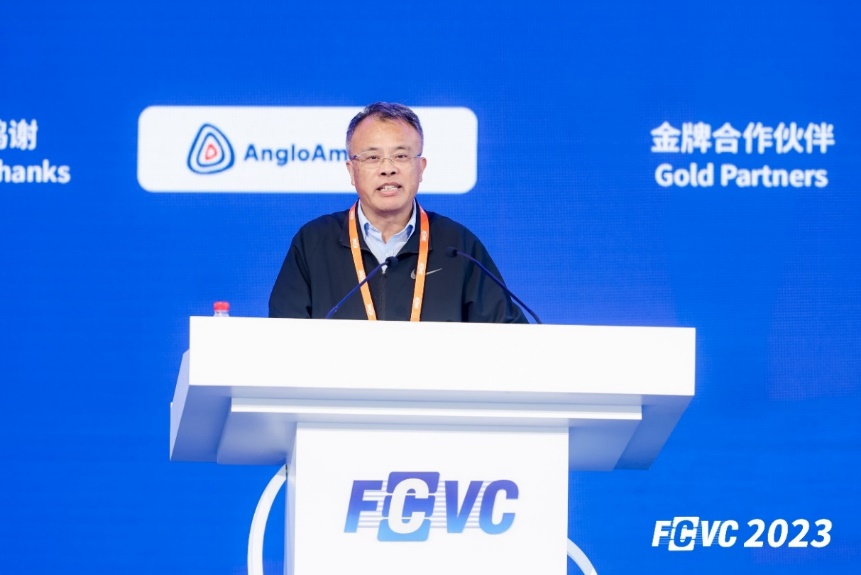
Yu Zhuoping, Professor from Tongji University
Yu Zhuoping, Professor from Tongji University and Standing Executive Board Member of IHFCA, hosted the keynote speech session which themes “Establishing the Coordinated Development of Hydrogen Industry” in the afternoon of July 6th.
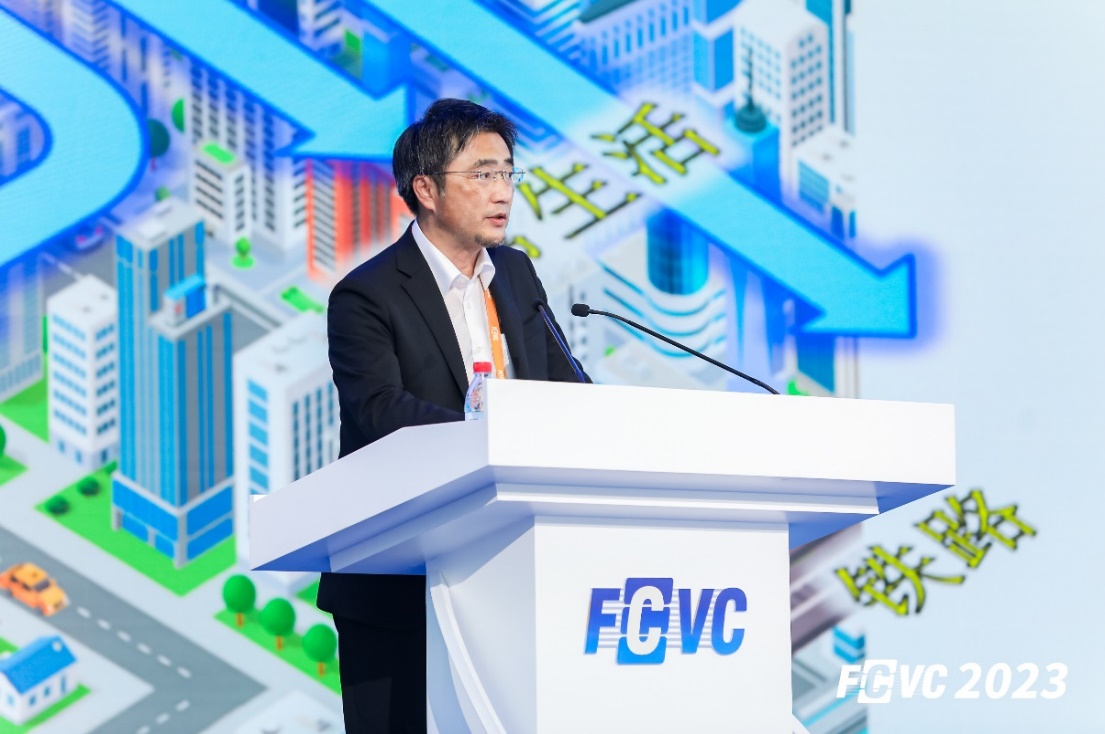
Mitsumasa Yamagata, President of Hydrogen Factory from Toyota Motor Corporation, Vice Chairman Member of IHFCA
Mitsumasa Yamagata pointed out that China will become the largest hydrogen market in the world in 2030, once again emphasizing the importance of China in the hydrogen market and expressing confidence in the development potential of the Chinese market.
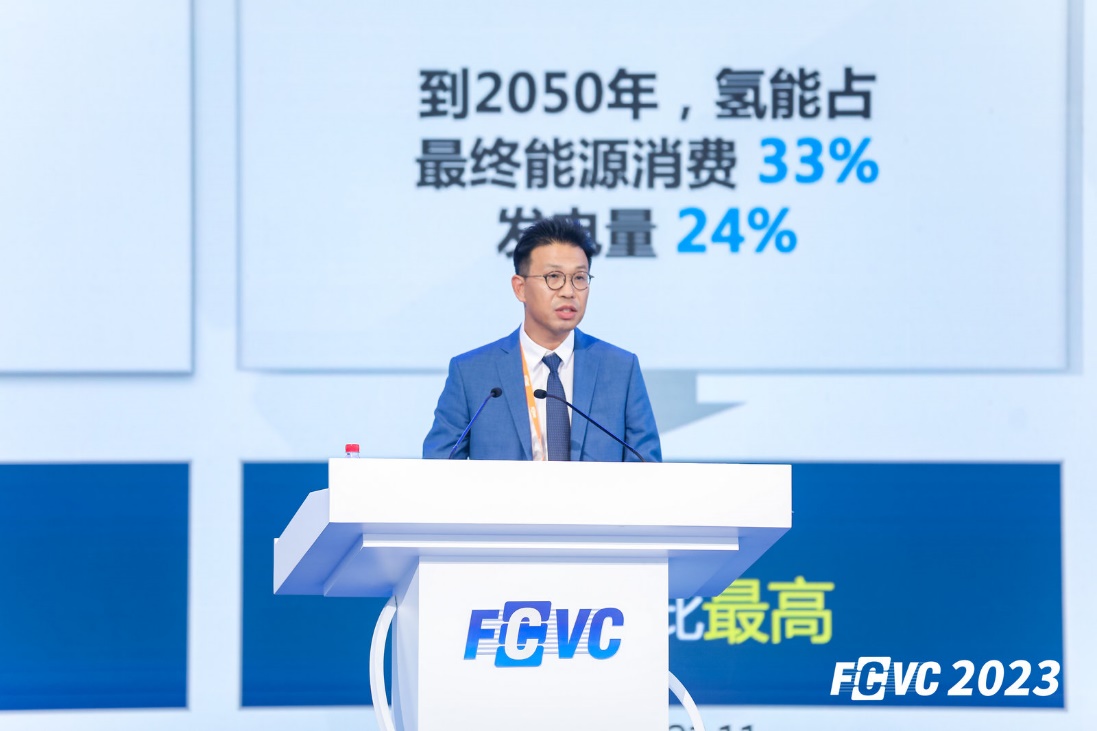
SeungChan Oh, General manager of HTWO Guangzhou, Vice Chairman Member of IHFCA
SeungChan Oh shared that hydrogen will become the new engine of economic growth in the future as we move toward a new era of "zero carbon emissions". While Hyundai Motor Group has made great achievements in hydrogen, it is also accelerating the transition to fuel cell drive in the commercial vehicle sector.
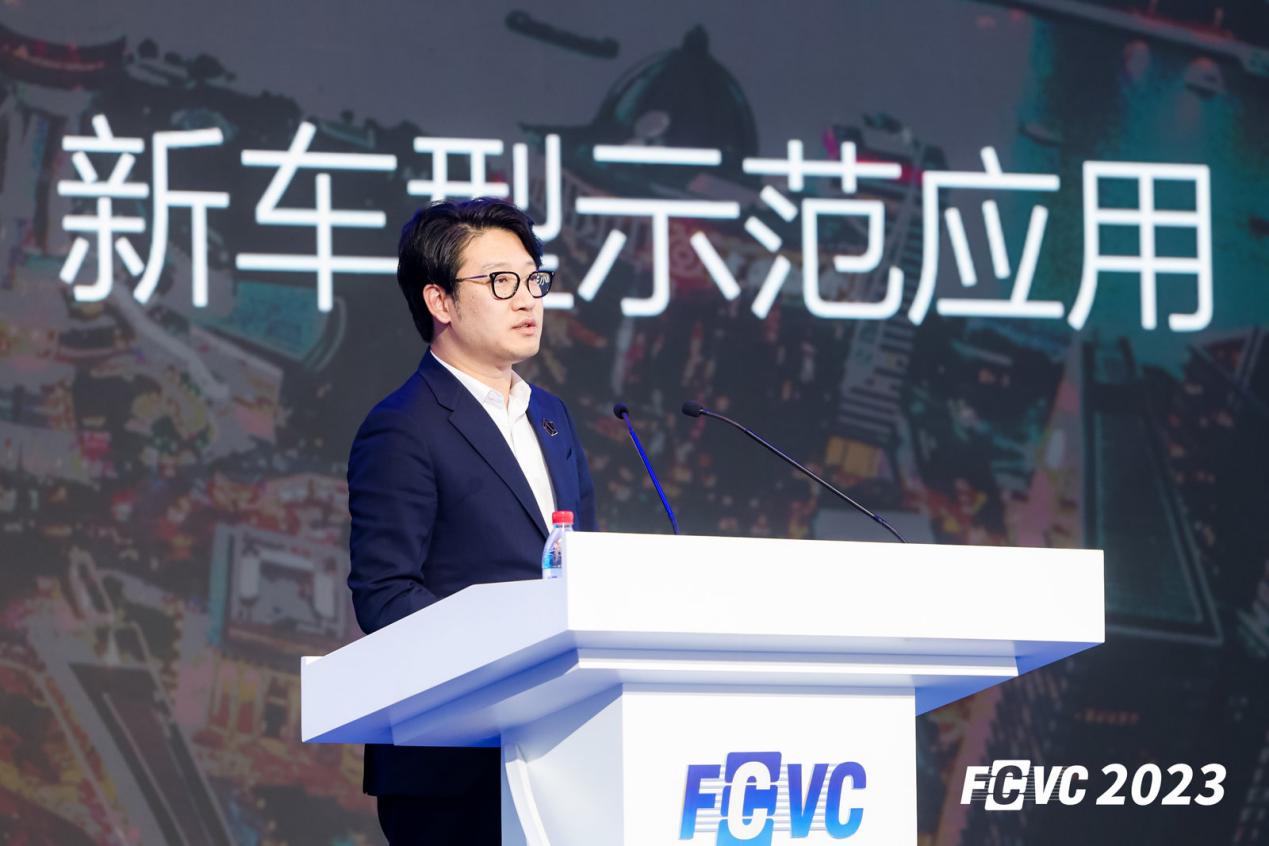
Lin Qi, Standing Executive Board Member of IHFCA, Chairman and President of Refire Group
Lin Qi said that driven by the five demonstration city clusters, China will experience an increase of more than 5,000 fuel cell vehicles in 2022, of which 50% will be medium- and heavy-duty trucks, and the number of hydrogen refueling stations will be more than 350, which ranks the first in the world, with application scenarios enriched, the industrial chain improved, and the key parts and materials becoming independent, and the promotion of China's fuel cell automobile application has achieved great results.
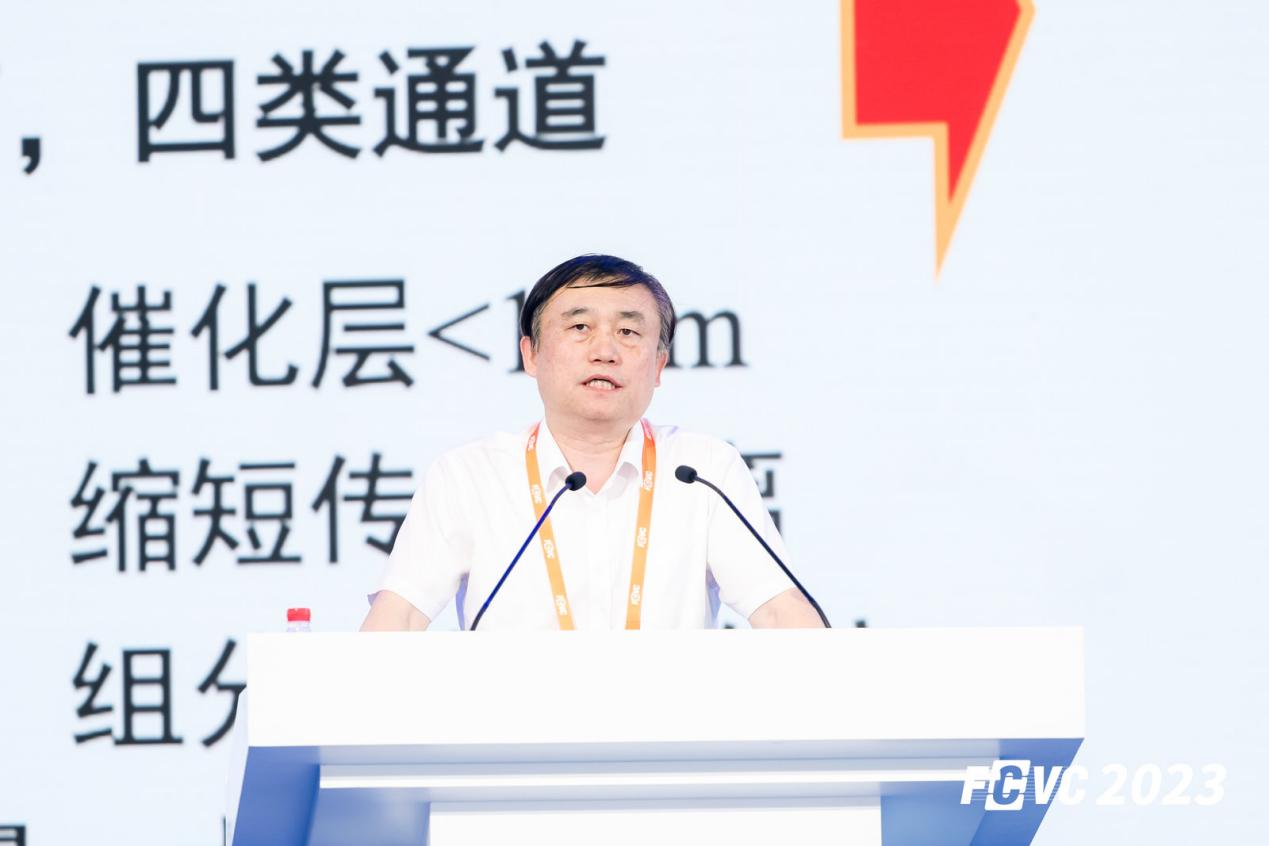
Shao Zhigang, Executive Board Member of IHFCA, Director of Fuel Cell Research Department from Dalian Institute of Chemistry Physics
Shao Zhigang pointed out that PEMFC has great advantages in terms of high efficiency, zero-pollution, fast refuelling, long range and high loading, which enable a bright future for PEMFC. As such, reducing cost is absolutely necessary for realizing fuel cell commercialization and wide application.
Members of IHFCA also attached great importance to the international platform provided by FCVC, with multiple member institutions actively participating in the Exhibition and sub-forums.
Note: The information above is based on stenography and is not confirmed by the speakers.